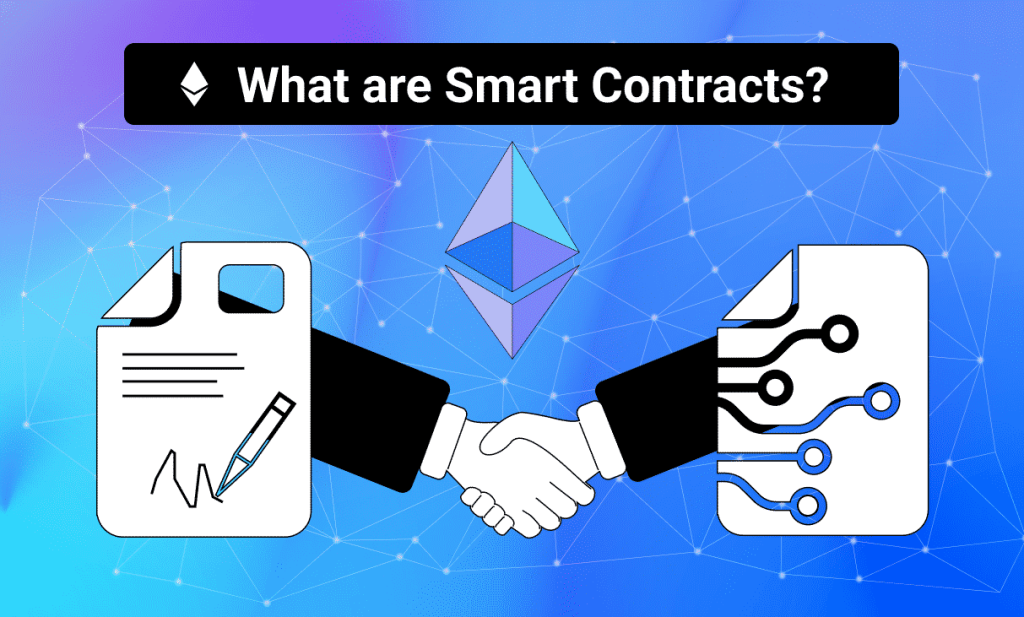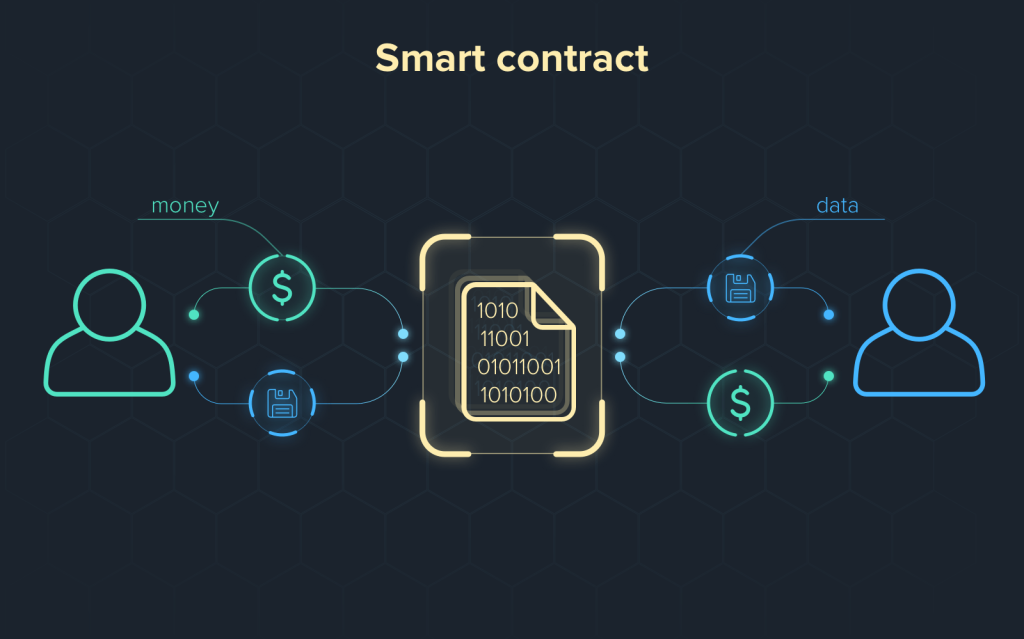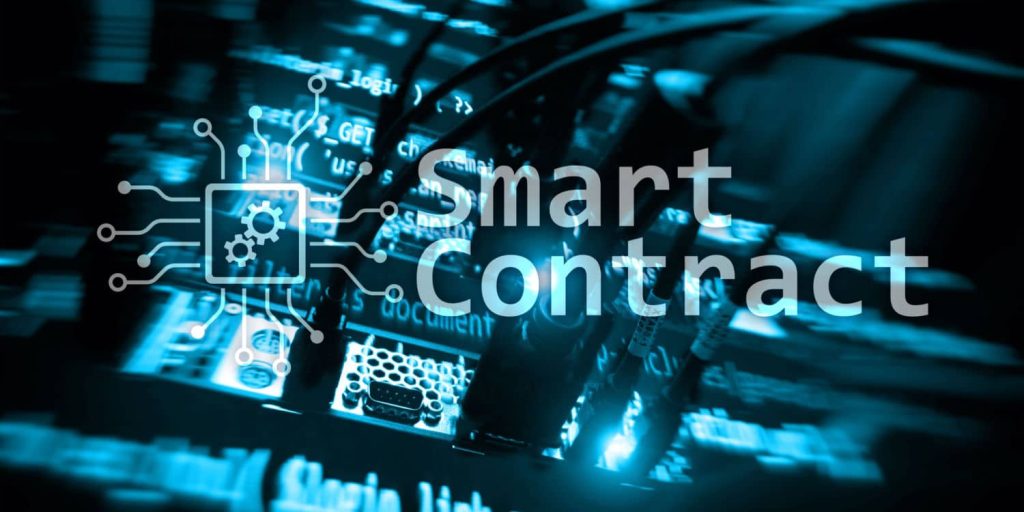If you’ve been keeping up with the latest developments in technology, chances are, you’ve come across the term “smart contract”. While it may sound like something out of a science fiction movie, this definition are becoming increasingly popular in the world of blockchain technology. But what exactly are smart contracts and how do they work?
In this article, we will delve into the concept of these, their application on the blockchain, and the benefits they offer. We will also explore some real-world use cases of smart contracts and discuss their potential impact on various industries.
Introduction to Smart Contracts
Definition
Smart contracts can be defined as self-executing digital contracts that are stored on a blockchain network. These contracts contain a set of predefined conditions that, once met, automatically trigger specific actions. They are essentially computer programs that allow for the automation of contract execution without the need for intermediaries.

The definition of Smart Contracts
Overview of their Role on the Blockchain
The concept of smart contracts was first introduced by Nick Szabo in 1994, but it wasn’t until the emergence of blockchain technology that they became a practical solution. These are built on top of blockchain networks, which act as a decentralized ledger for recording and verifying transactions. The use of blockchain technology ensures that this protocol are secure, transparent, and tamper-proof.
How Smart Contracts Work
Explanation of if/when…then Rules
Smart contract’s function based on the principle of “if/when…then” rules. This means that when certain conditions (if) are met, then a specific action (then) is triggered. These rules are written as code on the blockchain, making them immutable and irreversible once executed.
To understand this better, let’s look at an example. Say two parties enter into a smart contract where Person A agrees to pay Person B $500 upon completion of a project. The terms of the contract are programmed into the blockchain, and once Person A completes the project, the conditions are met, and the smart contract automatically executes the payment to Person B.
Role of Blockchain in Executing Smart Contracts
As mentioned earlier, smart contracts are built on top of blockchain networks, which act as a decentralized database. When a transaction occurs, it is recorded on the blockchain as a new block, which is then linked to previous blocks, creating a chain of transactions. This makes it virtually impossible to alter any records without altering the entire chain, providing a high level of security and transparency.
Once the conditions of a smart contract are met, the program is executed by nodes on the blockchain network. These nodes verify the transaction and update the record on the distributed ledger, making it immutable and accessible to all authorized parties.
Immutability of Transactions
One of the key features of smart contracts is their immutability. Once a transaction is recorded on the blockchain, it cannot be altered or deleted. This is because the data is stored across a network of nodes, and changing one record would require changing every subsequent record on the chain, making it nearly impossible to tamper with.
This immutability also ensures that all parties have access to the same information, eliminating the need for trust in the transaction. This is especially beneficial in scenarios where there may be a lack of trust between parties.

How do smart contracts work?
Benefits of Smart Contracts
Speed, Efficiency, and Accuracy
One of the main advantages of smart contracts is their speed, efficiency, and accuracy. Traditional contracts often involve manual processes, paperwork, and third-party intermediaries, which can cause delays and errors. With this protocol, the entire process is automated, removing the need for intermediaries and reducing the potential for human error.
Smart contracts are also executed immediately upon meeting the predefined conditions, ensuring timely and accurate execution of transactions. This makes them particularly useful for time-sensitive activities, such as payments, where any delays can have a significant impact.
Trust and Transparency
Another significant benefit of it is their ability to foster trust and transparency in transactions. With traditional contracts, there is always a level of uncertainty and the need to trust the other party. However, with smart contracts, all terms and conditions are clearly defined and recorded on the blockchain, leaving no room for misinterpretation or manipulation.
Transparency is also ensured as all parties involved in the transaction have access to the same information. This eliminates the possibility of hidden fees, fine print, or other surprises that may arise with traditional contracts.
Security
The use of blockchain technology provides an additional layer of security to smart contracts. As previously mentioned, once a transaction is recorded on the blockchain, it cannot be altered or deleted. This makes it nearly impossible for malicious actors to manipulate the data or disrupt the transaction process.
Furthermore, all transactions on the blockchain are encrypted, making them difficult to hack. In traditional contracts, sensitive information is often shared with multiple parties, increasing the risk of data breaches. With this protocol, only authorized parties have access to the information, making it more secure.
Real-World Applications of Smart Contracts
Smart contracts have a wide range of potential applications in various industries. Let’s take a look at some real-world examples of how they are being used today.
Finance and Banking
One of the most promising use cases for smart contracts is in finance and banking. Traditional financial processes, such as loans and mortgages, can be time-consuming, involve large amounts of paperwork, and often require intermediaries. They can automate these processes, reducing the time, cost, and potential for errors.
For example, a smart contract can be used to automatically trigger loan repayments when the borrower receives their paycheck. This eliminates the need for manual payments and ensures that the borrower doesn’t miss any payments.
Supply Chain Management
Supply chain management involves the movement of goods and services from the supplier to the end consumer. This process often involves multiple parties, including manufacturers, distributors, and retailers, making it complex and prone to errors.
By using smart contracts, supply chain management can be streamlined and made more efficient. For instance, it can be used to automatically release payment to the supplier once the retailer receives the goods, eliminating the need for intermediaries and reducing the potential for delays or disputes.
Insurance
Insurance companies are also exploring the use of smart contracts to improve their processes. By automating claims processing, insurance companies can increase efficiency and reduce the potential for fraud.
For instance, if a policyholder experiences a car accident, the smart contract can automatically initiate the claims process by verifying the details of the accident and disbursing funds accordingly. This not only speeds up the process but also reduces the chances of fraudulent claims.
Real Estate
The real estate industry is another area where smart contracts can have a significant impact. Buying and selling property often involves multiple parties, including buyers, sellers, real estate agents, and lawyers, making it a complex and lengthy process.
By using this protocol, the entire process can be streamlined and made more efficient. For instance, the terms of the sale can be programmed into the smart contract, and once all conditions are met, the transfer of ownership and payment can be automatically executed. This eliminates the need for intermediaries and reduces the potential for disputes.

Smart contracts offer numerous potential applications across diverse industries
Potential Impact of Smart Contracts on Industries
The use of this protocol has the potential to disrupt traditional processes and bring about significant changes in various industries. Let’s look at some of the potential impacts of smart contracts.
Disruption of Traditional Processes
Smart contracts have the potential to disrupt traditional processes by automating and streamlining them. This can lead to increased efficiency, cost savings, and improved accuracy. However, this may also cause job losses in industries where manual labor is involved.
Increased Efficiency and Cost Savings
As discussed earlier, it can significantly increase efficiency and reduce costs. By automating processes and eliminating intermediaries, businesses can save time and money, which can then be invested in other areas of their operations.
Elimination of Intermediaries
One of the most significant potential impacts of smart contract is the elimination of intermediaries. By allowing direct transactions between parties, it removes the need for intermediaries, such as lawyers, banks, and brokers. While this may result in cost savings, it could also threaten the existence of these intermediaries in certain industries.
Conclusion
In conclusion, smart contract is self-executing digital contracts that are stored on the blockchain. They automate contract execution, ensuring all parties can immediately verify the outcome without intermediaries. They offer numerous benefits, including speed, efficiency, trust, and security.
They also have a wide range of potential applications in various industries, including finance, supply chain management, insurance, and real estate. While the use of this protocol has the potential to bring about significant changes in traditional processes, it is essential to consider both the benefits and potential drawbacks before fully embracing this technology.


